Recent Blog Posts
June Is National Dog Bite Awareness Month
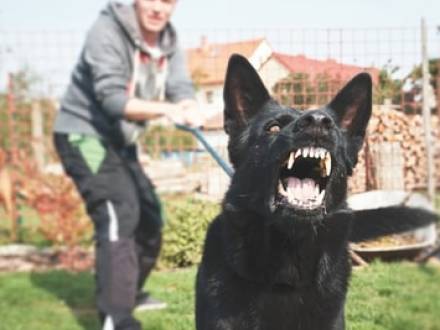 According to the United States Postal Service, there were over 6,000 reported cases of dog attacks on postal workers. Chicago ranked third in the nation for cities having the most dog bites and attacks, with Illinois coming in fourth among the states. Of course, mail carriers are not the only delivery people regularly visiting residences. Amazon, UPS, and FedEx, along with food delivery services and other companies, make countless deliveries daily in Chicagoland.
According to the United States Postal Service, there were over 6,000 reported cases of dog attacks on postal workers. Chicago ranked third in the nation for cities having the most dog bites and attacks, with Illinois coming in fourth among the states. Of course, mail carriers are not the only delivery people regularly visiting residences. Amazon, UPS, and FedEx, along with food delivery services and other companies, make countless deliveries daily in Chicagoland.
However, you do not have to be a delivery person to suffer from a dog attack or bite. Any dog, even one with no previous history of aggression, is still an animal that could bite or attack you or your children. If that happens, our experienced DuPage County, IL dog bite injury lawyers can help you hold the dog’s owner or other responsible party accountable.
What Should You Do After a Dog Bite?
 A sudden snap. A flash of teeth. In the blink of an eye, a peaceful walk or friendly visit can turn into a medical emergency. Dog bites happen quickly, often without warning, and they can leave more than just physical scars. From puncture wounds and infections to emotional trauma and lost wages, the aftermath can be overwhelming. With the guidance of a Cook County, IL dog bite injury attorney, you can take the right steps to protect your health, assert your rights, and secure the compensation you need to heal.
A sudden snap. A flash of teeth. In the blink of an eye, a peaceful walk or friendly visit can turn into a medical emergency. Dog bites happen quickly, often without warning, and they can leave more than just physical scars. From puncture wounds and infections to emotional trauma and lost wages, the aftermath can be overwhelming. With the guidance of a Cook County, IL dog bite injury attorney, you can take the right steps to protect your health, assert your rights, and secure the compensation you need to heal.
What Should You Do Immediately After a Dog Bite?
Your health should always be the first concern. Move to a safe area to avoid further injury and seek immediate medical attention, as even seemingly minor bites can lead to serious infections if not promptly treated. A healthcare provider must examine the injury to determine the best course of treatment.
Can You Sue For A Dog Bite in an Illinois Dog Park?
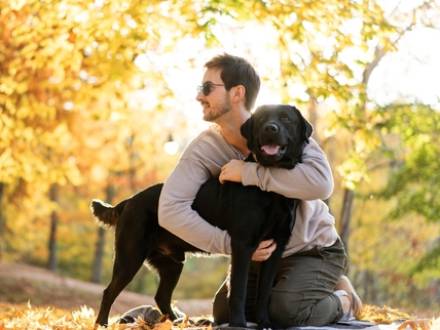 Dog parks are an attractive option for Illinois dog owners to provide their pets with exercise and socialization. However, one never knows what other dogs are capable of. Severe animal attacks happen in dog parks, and if one happens to you, the Illinois dog bite attorneys at Dog Bite Injury Lawyer - Mevorah Law Offices LLC will help you understand if your case could lead to compensation.
Dog parks are an attractive option for Illinois dog owners to provide their pets with exercise and socialization. However, one never knows what other dogs are capable of. Severe animal attacks happen in dog parks, and if one happens to you, the Illinois dog bite attorneys at Dog Bite Injury Lawyer - Mevorah Law Offices LLC will help you understand if your case could lead to compensation.
Who is Liable for a Dog Park Attack?
People who enter a dog park in Illinois assume some risk, but no one should suffer a dog attack in these public areas. According to the Illinois Animal Control Act, Illinois has a strict liability statute for dog attacks. This means that the owner shall be held liable for the injuries their animal causes in these circumstances:
-
The dog bite victim was legally present in the area where the attack happened. A dog park is a public area, so you have a legal right to be there.
What if You Are Unsure Who Owns the Dog That Bit You?
 Often, victims of dog bites know who the dog's owner is. Either the dog escaped from the owner’s fence and bit someone close to his or her home, or the owner has the dog at a park, in a store, or walking down the sidewalk with the dog. When a person is bitten by a dog with the owner nearby, the owner usually admits he or she owns the dog, information is exchanged, and the owner is held liable for the injuries to the person his or her dog bit.
Often, victims of dog bites know who the dog's owner is. Either the dog escaped from the owner’s fence and bit someone close to his or her home, or the owner has the dog at a park, in a store, or walking down the sidewalk with the dog. When a person is bitten by a dog with the owner nearby, the owner usually admits he or she owns the dog, information is exchanged, and the owner is held liable for the injuries to the person his or her dog bit.
Occasionally, a person is bitten by a dog and has no idea who the dog belongs to. This can be a very challenging situation. Of course, the victim should seek medical attention, but if he or she is able (and the dog is not still aggressive), taking a photo of the dog can be extremely helpful. If you or a loved one are the victim of injuries from a dog bite or attack, it is time to speak to an experienced Kane County, IL dog bite attorney.
Alton Man Dies After Being Attacked by Pit Bull
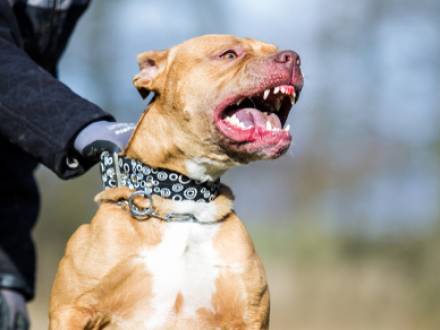 A man in his early 50s recently died after being attacked by a pit bull in a home in Alton. Firefighters and police were called to the home, where the bite victim remained inside with the dog while family members were outside in the driveway. Officers entered the home, and a gunshot was heard by those outside.
A man in his early 50s recently died after being attacked by a pit bull in a home in Alton. Firefighters and police were called to the home, where the bite victim remained inside with the dog while family members were outside in the driveway. Officers entered the home, and a gunshot was heard by those outside.
While the EMT personnel tried to treat the man and called for a Medi-vac helicopter, the man succumbed to his injuries and was pronounced dead. There was no information regarding what caused the dog to attack the man. If you are the victim of a dog bite or attack, speaking to a knowledgeable Kane County, IL dog bite attorney can help ensure you receive justice in the form of a fair settlement that covers your damages.
Are Pit Bulls More Likely to Attack Than Other Breeds?
A study that tracked dog bites and dog attacks for 13 years found that out of the 433 deaths from dog bites, pit bulls were responsible for 66 percent of those deaths. Rottweilers were responsible for 10 percent of deaths from dog attacks, with bulldogs, mastiffs, German shepherds, huskies, and mixed breeds making up the remaining 24 percent of dog bites or attacks that led to death. This is not to say that all pit bulls are dangerous, but they may be considered unpredictable, and historically, pit bulls were bred to fight one another in illegal dog fights.
Are Dogs Allowed to Run in Packs More Likely to Attack?
 Dogs are best friends to millions of adults and children and are often viewed as family members. In 2023, more than 65.1 million U.S. households had at least one dog. Dogs are the most widely owned type of pet, followed by cats and freshwater fish, like goldfish. Dogs are protectors, buddies, companions, and service animals, and most owners operate on the theory that we feed them, and they do not hurt us.
Dogs are best friends to millions of adults and children and are often viewed as family members. In 2023, more than 65.1 million U.S. households had at least one dog. Dogs are the most widely owned type of pet, followed by cats and freshwater fish, like goldfish. Dogs are protectors, buddies, companions, and service animals, and most owners operate on the theory that we feed them, and they do not hurt us.
While most dogs are every good thing we believe they are, there are instances when a dog may suddenly decide to bite. The dog could have been startled, scared, protecting its owner, or naturally aggressive. If you have been bitten by a dog, the owner of the dog may be liable for the resulting injuries. You may be unsure what you need to do following a dog bite. It can be beneficial to speak to a Will County, IL dog bite attorney.
Store or Dog Owner? - Liability for a Dog Bite Inside a Store
 Most of us have become accustomed to seeing owners with their dogs in "pet-friendly" stores like Lowe’s and Tractor Supply. Dogs are often welcome in many open-air farmer’s markets and in some smaller family-owned stores. Unfortunately, this can sometimes lead to dog fights and dog bites. As an example, a three-year-old boy who was with his father and Grandmother in a North Carolina Lowe’s was bitten in the face by a dog belonging to another customer.
Most of us have become accustomed to seeing owners with their dogs in "pet-friendly" stores like Lowe’s and Tractor Supply. Dogs are often welcome in many open-air farmer’s markets and in some smaller family-owned stores. Unfortunately, this can sometimes lead to dog fights and dog bites. As an example, a three-year-old boy who was with his father and Grandmother in a North Carolina Lowe’s was bitten in the face by a dog belonging to another customer.
The dog was on a leash, being walked through the garden department of Lowe’s by its owner when it bit the boy in the face. The injuries were severe, requiring 50 stitches. The boy’s parents filed a lawsuit alleging the store was responsible for the incident because it allowed the dog in the store. The lawsuit further stated that employees who witnessed the dog attack failed to call 911.
Investigators found that the dog had been involved in prior incidents with your children. Deeming the owner "irresponsible," the dog was subsequently placed in a shelter. A Lowe’s spokesperson maintains that only service animals are allowed inside Lowe’s stores for "safety and sanitary reasons." Illinois has a strict liability policy for dog bites, generally holding the dog owner liable for medical bills.
Are Children Particularly Vulnerable to Dog Bites?
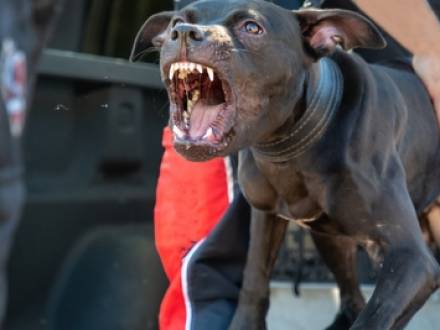 At the end of June, an eight-year-old girl was attacked by the family dog in Alton. A neighbor called 911, reporting that the child had been bitten and was bleeding and that the other children were unable to get the dog away from her. When police arrived, the dog had been taken outside and was being held by that same neighbor; police said the dog "appeared calm," although it had blood around its mouth.
At the end of June, an eight-year-old girl was attacked by the family dog in Alton. A neighbor called 911, reporting that the child had been bitten and was bleeding and that the other children were unable to get the dog away from her. When police arrived, the dog had been taken outside and was being held by that same neighbor; police said the dog "appeared calm," although it had blood around its mouth.
The girl was locked in the bathroom on the second floor. When the officers gained entry, they found her in the bathtub, covered in blood. While the police were checking on the girl, the dog escaped the neighbor’s grasp on its collar and began attacking Alton Fire Department personnel. After multiple attempts to secure the dog via less lethal methods (including a Taser), officers were forced to euthanize the dog so the girl could be air-evacuated to the hospital in St. Louis.
Unfortunately, it is not entirely uncommon for a family dog to bite a child, even if the dog has never shown aggression to the child before. The child may have startled the dog or hurt the dog unintentionally. More often, children’s dog bites are from an unknown dog who may be unused to children or could be naturally aggressive. If your child has been bitten by a dog, it can be helpful to speak to an Aurora, IL dog bite attorney from Dog Bite Injury Lawyer - Mevorah Law Offices LLC.
Can Counseling Help the Emotional Trauma from a Dog Bite?
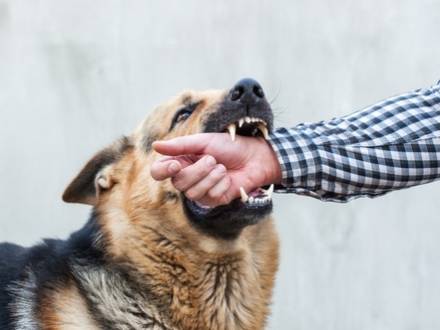 Dog bites often result in lifelong injuries, including prominent disfigurement when the dog bite is in the facial area. Being attacked by a dog can be a traumatizing event. While most dogs are friendly, all dogs have the capacity to bite, especially when startled, frightened, or when the dog is defending his owner or property. The individual who is bitten can be left with lingering phobias, PTSD, and other emotional trauma long after the physical effects of a dog bite have begun to fade.
Dog bites often result in lifelong injuries, including prominent disfigurement when the dog bite is in the facial area. Being attacked by a dog can be a traumatizing event. While most dogs are friendly, all dogs have the capacity to bite, especially when startled, frightened, or when the dog is defending his owner or property. The individual who is bitten can be left with lingering phobias, PTSD, and other emotional trauma long after the physical effects of a dog bite have begun to fade.
If you or a loved one has been injured in a dog attack, you need solid legal assistance. Although money cannot change what happened to you, it can help you get the medical and psychological help you need to move forward in your life. Speaking to a knowledgeable Naperville, IL dog bite attorney from Dog Bite Injury Lawyer - Mevorah Law Offices LLC can help ensure you receive a fair settlement for your dog bite injuries. Our experienced attorneys will explore all avenues for compensation for your physical and emotional trauma resulting from a dog bite.
Are Untrained Dogs More Likely To Attack and Bite?
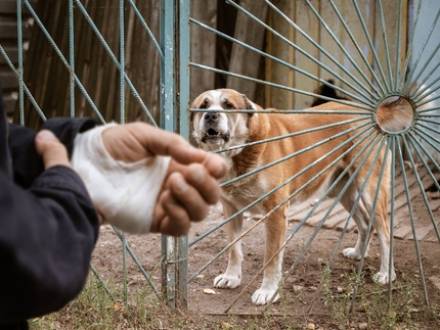 It is said that dogs are man’s best friends. That may be true in most cases, but dog attacks and bites happen far too often. Along with the potentially severe physical injuries, victims can also suffer from mental and psychological trauma. If you think about dog attacks, you may assume the dog is an aggressive breed or has been mistreated, but that is not always the case.
It is said that dogs are man’s best friends. That may be true in most cases, but dog attacks and bites happen far too often. Along with the potentially severe physical injuries, victims can also suffer from mental and psychological trauma. If you think about dog attacks, you may assume the dog is an aggressive breed or has been mistreated, but that is not always the case.
Training and socialization — or the lack thereof — affect a dog’s behaviors and responses. Even if dog owners are not financially able to have their pets trained professionally, there are still things they can do on their own to reduce the likelihood of attacks. If a dog bite injured you or your child, the skilled lawyers at Dog Bite Injury Lawyer - Mevorah Law Offices LLC can help you hold its owner accountable.
Why Do Dogs Attack or Bite?
Even a generally docile dog may attack in some situations, particularly when provoked. Several factors make bites more likely, such as:







Contact an Illinois Dog Bite Attorney
If you have suffered a dog bite injury, our personal injury lawyers can help you determine the actual value of the damages you have suffered, and we will work to help you recover the compensation you deserve. Call us at 630-552-6860 or fill out the form below to arrange a free consultation.


 630-552-6860
630-552-6860




